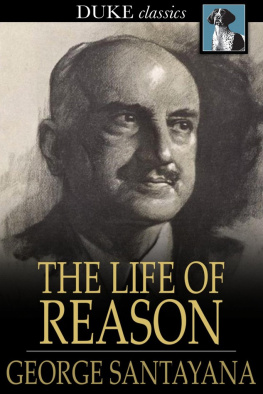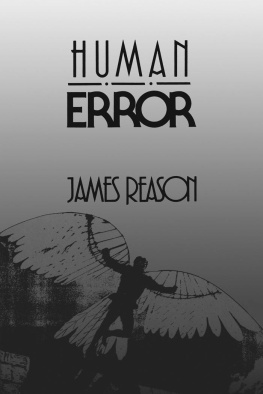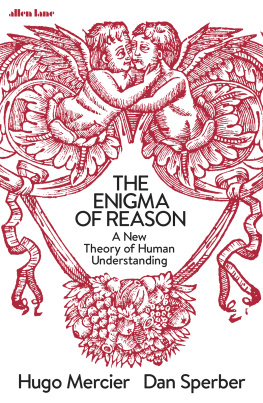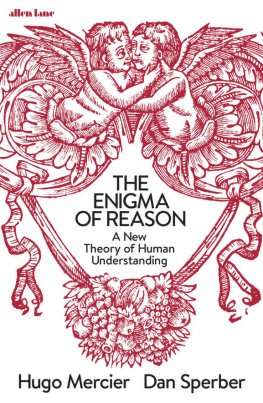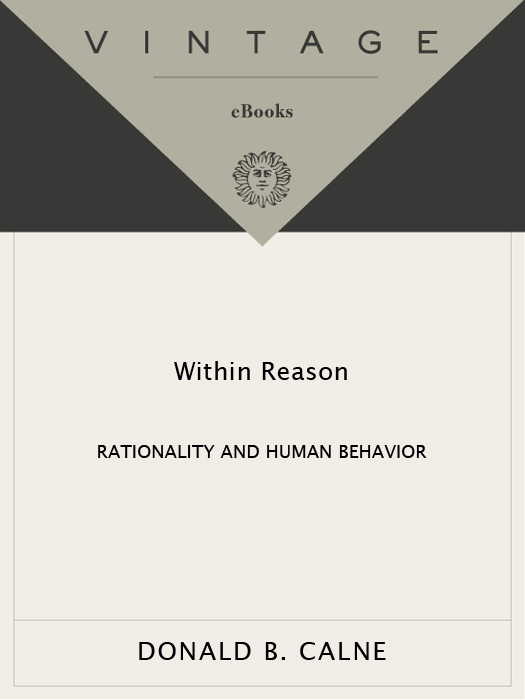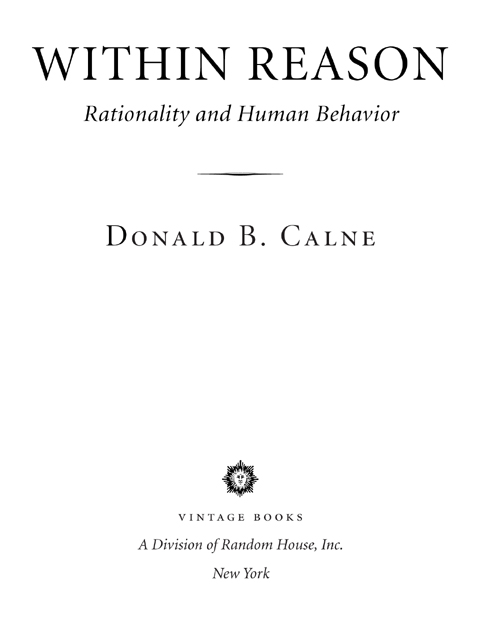A major intellectual achievement. Following the inextricable link of brain and mind, Calne has pursued the application of reason to language, social and individual behavior, ethics, commerce, religion, art, and science. This broad canvas provides the background for his erudition and for his uncanny ability to make complicated subjects absolutely clear.
Lewis P. Rowland, M.D., Professor of Neurology,
Columbia University College of Physicians and Surgeons
Calne shows how our humanness has emerged from rational thought and that our precariousness as a species will depend on a yet unperceived consilience to contain and bias reason for choosing good. Within Reason provides compelling new insights into the workings of the human brain.
Roger N. Rosenberg, M.D.,
Zale Distinguished Chair in Neurology,
University of Texas Southwestern Medical Center at Dallas
In this fine, erudite book, Calne places human reason against the background of our neurology and evolutionary biology. He tells us that rationality by itself provides little guidance for life. For anyone who feels that science is of necessity reductionistic and morally insensitive, here is a book to prove them wrong.
Donald B. Calne
WITHIN REASON
Donald B. Calne is director of the Neurodegenerative Disorders Centre at Vancouver Hospital and professor of neurology at the University of British Columbia. He lives in Vancouver.
FIRST VINTAGE BOOKS EDITION, AUGUST 2000
Copyright 1999 by Donald B. Calne
All rights reserved under International and Pan-American Copyright Conventions. Published in the United States by Vintage Books, a division of Random House, Inc., New York, and simultaneously in Canada by Random House of Canada Limited, Toronto. Originally published in hardcover in the United States by Pantheon Books, a division of Random House, Inc., New York, in 1999.
Vintage and colophon are registered trademarks of Random House, Inc.
Grateful acknowledgment is made to The MIT Press for permission to reprint the translation of a poem by Sappho from The Rationality of Emotion by Ronald de Sousa.
Copyright 1987 by The Massachusetts Institute of Technology. Reprinted by permission of The MIT Press.
The Library of Congress has cataloged the Pantheon edition as follows:
Calne, Donald B. (Donald Brian)
Within reason : rationality and human behavior / Donald B. Calne.
p. cm.
eISBN: 978-0-307-49330-9
1. Reason. 2. Reasoning (Psychology) I. Title.
BF442.C35 1999
153.43dc21 98-38230
Author photograph Biomedical Communications, U.B.C.
www.vintagebooks.com
v3.1
To my wife, Susan
CONTENTS
1
I NTRODUCTION
2
A D EFINITION OF R EASON
3
L ANGUAGE AND S PEECH
4
S OCIAL B EHAVIOR
5
E THICS
6
C OMMERCE
7
G OVERNMENT
8
R EASON FOR R ELIGION
9
R EASON A GAINST R ELIGION
10
A RT
11
S CIENCE
12
B EHAVIOR AND THE B RAIN
13
M IND
ACKNOWLEDGMENTS
First, I thank Oliver Sacks, the writer who brought the excitement of neurology to the general public; he kindly looked at the manuscript and gave me encouragement. Beverly Goldberg guided me through the maze of possible publishers. Michael Schulzer, Dan Overmyer, Edward Hundert, and Tony Phillips spent much time in reviewing the text. Many colleagues commented on the chapters in their special areas of expertise, in particular Braxton Alfred, David Crockett, Serge Guilbaut, Reinhard Horowski, Trevor Hurwitz, Ashok Kotwal, Peter Liddle, Victoria McGeer, Bill McKellin, Hugh McLennan, Jeff Miller, Chris Pallis, Jon Stoessl, Michael Tenzer, Franois Vingerhoets, and Earl Winkler. Elsie Wollaston gave bibliographic assistance. Iain MacPhail, John Nichol, Paul Nicholson, Janet Pau, Michael Pitfield, and Gordon Vichert provided constructive advice, and my son, Max Calne, shared many useful thoughts. I would also like to thank Peter Dimock of Pantheon Books, whose wisdom and editorial experience were combined with unusual warmth, so that our relationship became one of friendship and mutual respect. Last and most importantly, I thank my wife, Susan, for her consistent help; above all, I thank her for enduring my distraction with the book over many evenings, weekends, and vacations.
PREFACE
This book looks at reason and how it affects our lives. Where does reason come from, what is it, what can it do, and what can it not do? How do our brains provide us with minds with which we create concepts of space, time, and causation, and how have these, combined with the capacity of memory, enabled us to establish the faculty of reason? I will argue that reason has grown beyond its innately humble origins to acquire a seemingly invincible power that encroaches upon and overshadows the rest of life. Paradoxically, one of reasons greatest contributions may yet turn out to be precise delineation of its own limits, thereby making possible greater responsibility on the part of the planets dominant species. The task of this book is to remind us that reason is a biological product, with biological purposes and biological limitations. We are motivated by instinctive urges and emotions linked to cultural forcesreason is their servant and not their master.
Would the world be a better place if reason were somehow put in the drivers seat? Will it become possible to insert reason into the mechanisms of human motivation, the way molecular biologists can insert a gene into the decision-making processes of a cell? Is language essential for the exercise of reason? What role does reason play in morality? These are some of the questions we must ask in order to approach the larger issue of the part played by reason in human life.
INTRODUCTION
The sordid and savage story of history has been written by mans irrationality, and the thin precarious crust of civilization which has from time to time been built over the bloody mess has always been built by reason.
BARBARA WOOTTON
W HEN I WAS young, I was taught that education was important because without it we would be doomed to stupid behavior and opinions based upon prejudice. Educated people, I was told, were able to make wise decisions and to distinguish between right and wrong because they had the power of reason available to them. I grew up during the Second World War, and one of my most vivid childhood memories was a kaleidoscope of movie images shown in British schools in 1946, depicting the Nazi death camps. I was puzzled, for I had been led to believe that these atrocities were the irrational work of barbarians whose evil stemmed from ignorance. Yet I was also taught that Germany was distinguished by a history of outstanding reason, expressed in philosophy, music, poetry, science, and technology. If what I had been told about wisdom coming from education was true, how was it possible that Germany, the home of Bach, Beethoven, Brahms, Goethe, Leibniz, and Kant, could become a nation driven by hatred and complicit in the worst crimes against humanity that the world had ever seen? The conflict remained with me and gradually matured into a series of questions. Does reason direct what we do? If we think more, do we behave better? In short, could the nightmare of the Second World War have been avoided if the leaders of National Socialism had acquired, in some miraculous way, a sudden capacity for more reason?


